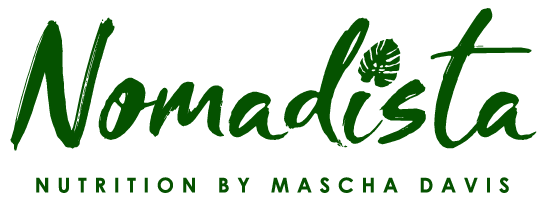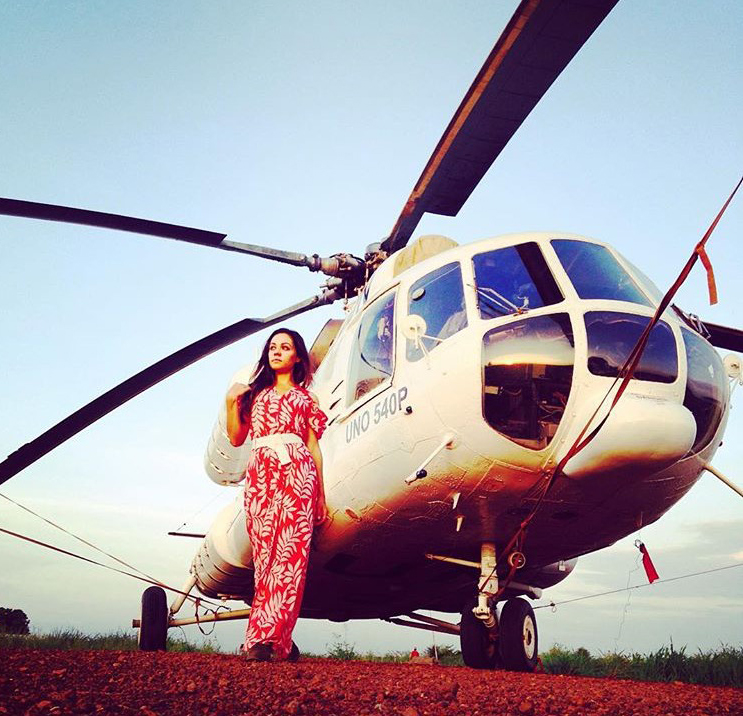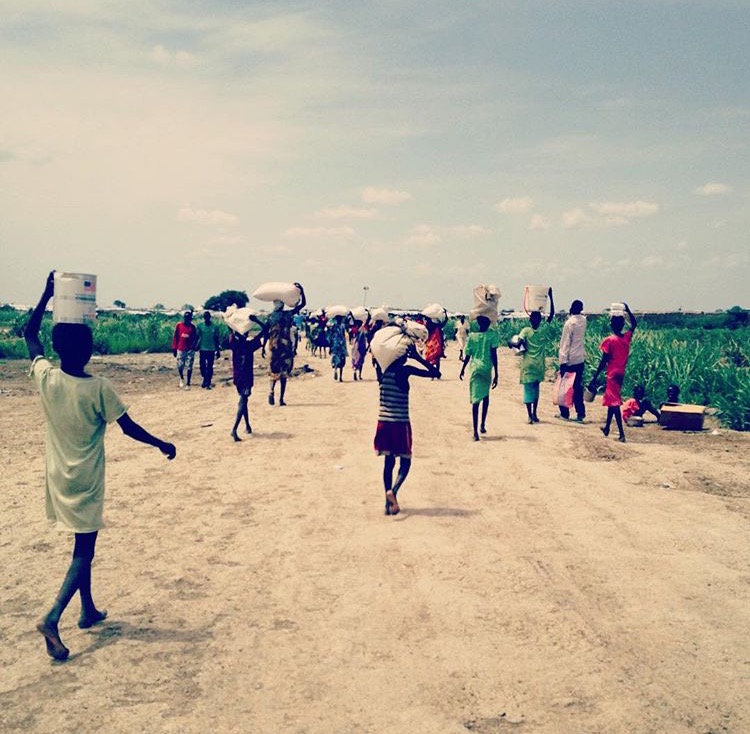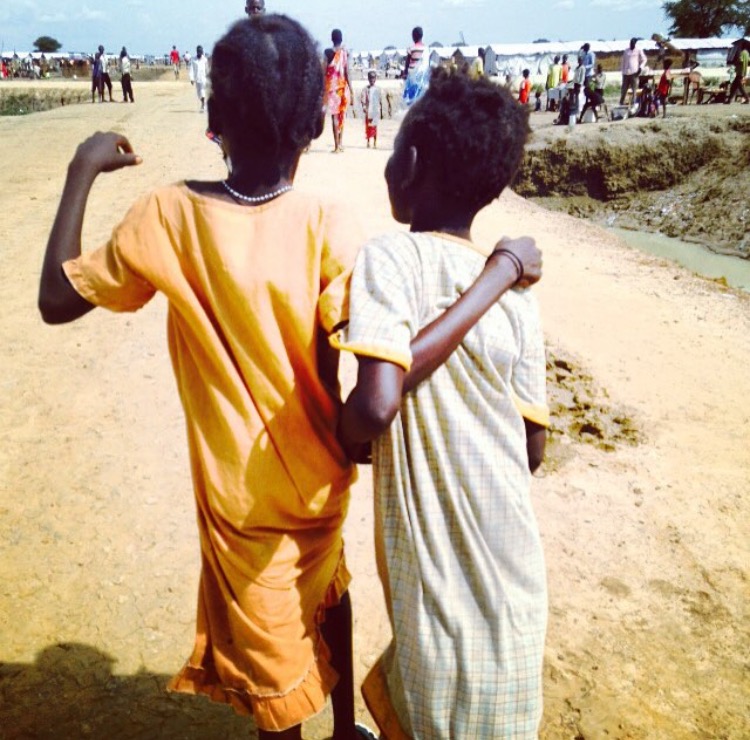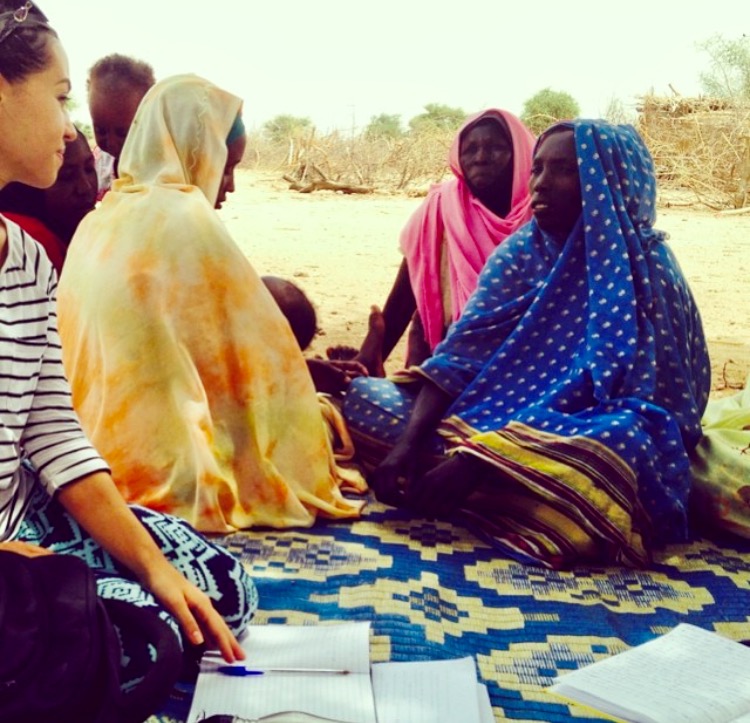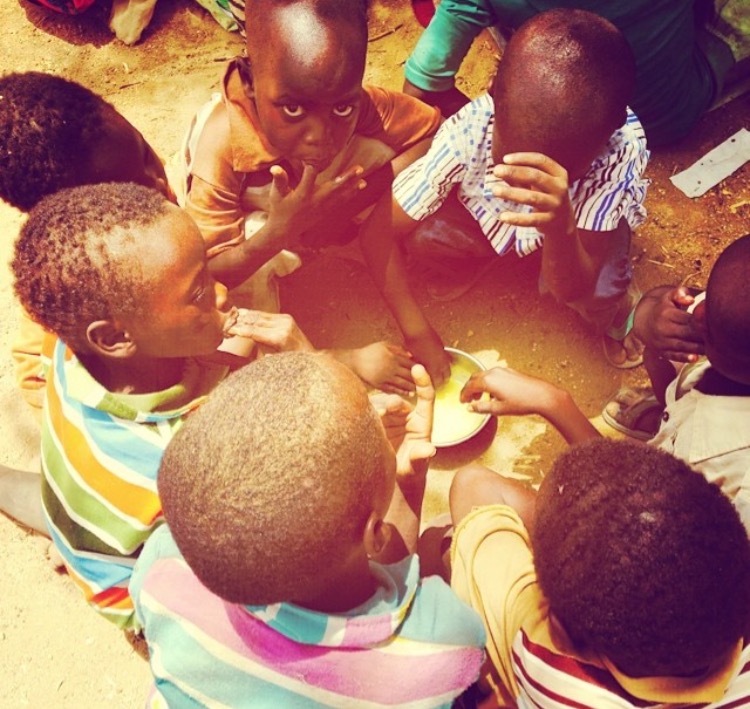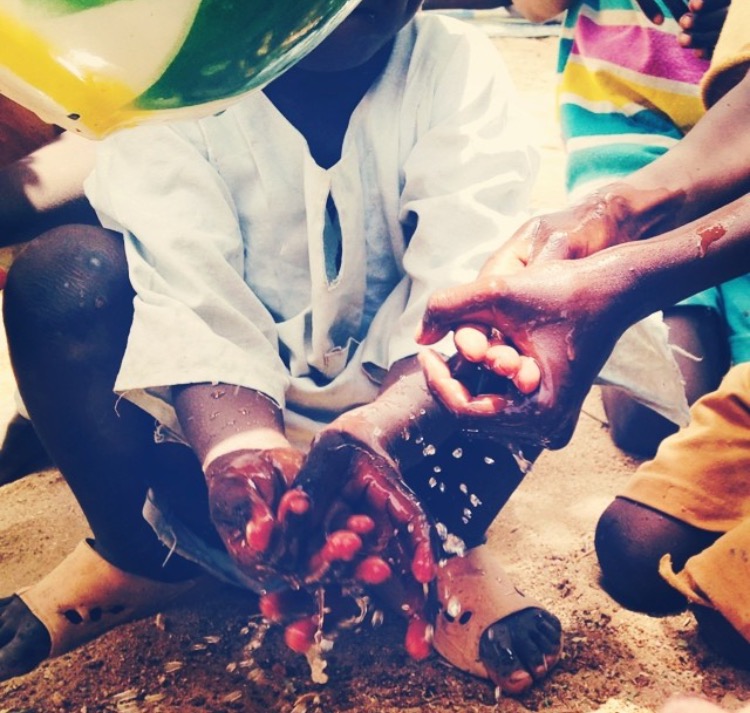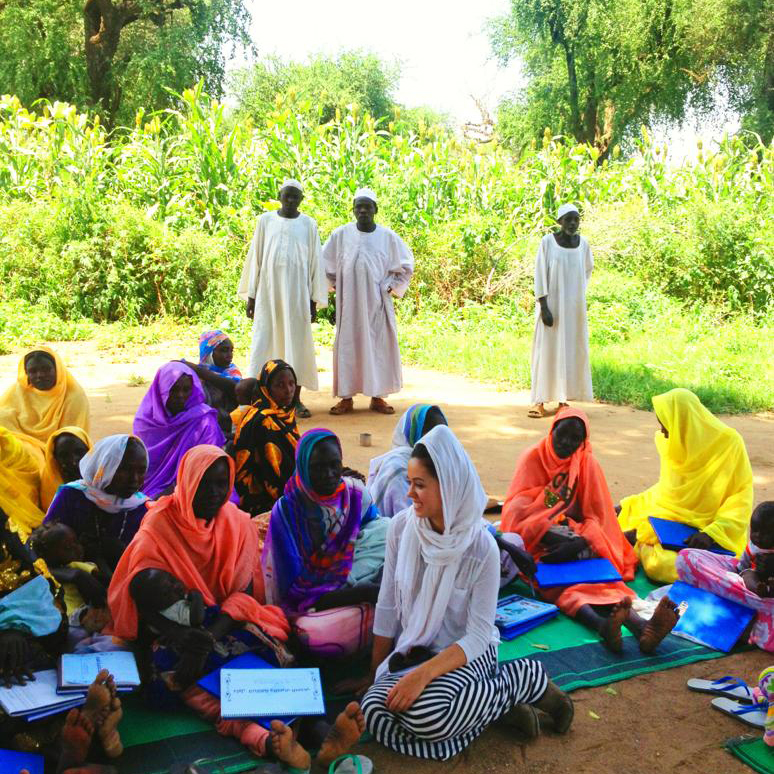We each have a responsibility to make the planet a healthier, happier place.
Belief, Passion and Action
Mascha with Valentino Achak Deng at the VAD Fundraiser in Los Angeles
From 2010 - 2015, I lived in five different African countries, helping to fight malnutrition as a program manager with a number of different NGOs (Non Governmental Organizations). Having worked throughout different regions in Gabon, Ethiopia, Darfur (Sudan), South Sudan and Chad, humanitarian work remains very close to my heart.
In 2015, I had the privilege to work at the largest displaced persons camp in the country of South Sudan, Bentiu. Malnutrition rates in the Bentiu camp (and many other parts of South Sudan) continue to be extremely high. While there, I met individuals who were fleeing unimaginable violence and had walked for days through dangerous swamps to reach safety. Meeting the extraordinary women, men, and children who came to the camp was one of the most moving experiences of my life. That’s why I’m committed to raising awareness by publicly speaking about their plight and donating a portion of my proceeds to humanitarian causes.
Nomadista Nutrition has partnered with two fantastic organizations benefitting the people of South Sudan. The Valentino Achak Deng Foundation is focused on building a sustainable future in South Sudan through education. As a member of their Advisory Council, I am helping to raise funds to provide nutritious meals to their students.
Catwalk to Freedom is supporting young South Sudanese refugee women who have fled the country and are seeking a better future in Kenya and other nearby countries. A portion of our proceeds go to supporting these two wonderful NGOs. If you are interested in attending a fundraiser or discussing becoming involved in our LA events to benefit South Sudan, please contact me.
The situation in South Sudan
On July 9th 2011, South Sudan gained its independence by putting an end to a twenty-year civil war between the Khartoum regime and the separatist rebels in the South. The youngest state in the world boasts significant oil reserves, but suffers from a lack of development and, most crippling, from a lack of infrastructure.
Between the end of 2011 and the beginning of 2012, the arrival on South Sudanese soil of 200,000 Sudanese fleeing the fighting between the Sudanese government forces and a Sudanese rebel group, the SPLA-N, triggered major security problems. The refugees settled in relatively remote rural areas that lacked the infrastructure necessary to cope with their arrival. Numerous large-scale humanitarian operations had to be put in place to respond to their most basic needs.
On December 15th 2013, violent clashes broke out in the capital city of Juba between the army, controlled by President Salva Kiir, and supporters of the former vice-president Riek Machar. The political disagreement between the two men is linked to the rivalry between the two main ethnic groups in the country, the Dinka and the Nuer.
Salva Kiir, from the Dinka people, accused Riek Machar, from the Nuer people, of an attempted coup and tried to have him arrested. The latter denied the charges and managed to flee with other Nuer leaders. In the days that followed, the conflict spread throughout the country, leaving thousands dead - a vast majority civilians - killed solely because of their ethnic origin.
Numerous attempts at mediation led by the IGAD (Intergovernmental Authority on Development) in Addis Ababa, Ethiopia, have led to several ceasefires being signed - however, to date, these agreements have not been respected by the warring parties.
Since the outbreak of fighting, bases of the United Nations Mission in South Sudan (UNMISS) became places of refuge for the ethnic minorities of each town. As of 2018, the estimated number of displaced persons and refugees is over 4 million and growing. The estimated number of people facing severe food insecurity is at now over 5 million (48% of the population) and a famine has formally been declared in parts of the country by the United Nations.
